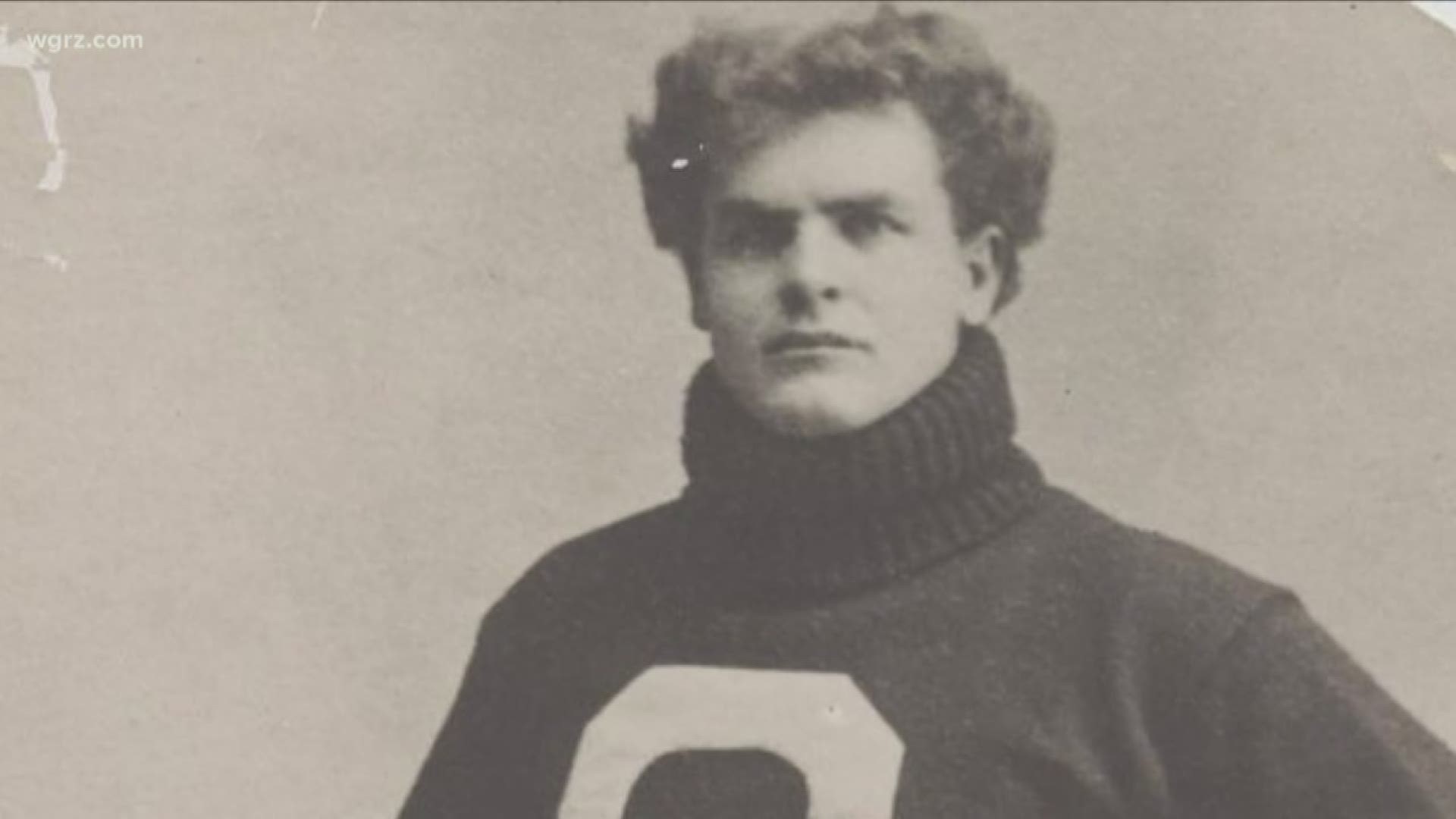SPRINGVILLE, N.Y. — His name has become synonymous with youth football, but there are a couple of things that might surprise you about Glenn Scobey "Pop" Warner.
The first from historian Robert Whitehead, "He played baseball in high school, but baseball was not to be his future."
And secondly, that high school was Springville-Griffith. Yes, this legend of the gridiron, called Western New York home.
His father moved the family to Texas after "Pop" graduated from high school.
Before too long, Warner found his way back east again, and in 1892 enrolled in Cornell Universit. Whitehead says that's where he discovered football. "He got there and he saw a bunch of these students dressed in funny looking uniforms, throwing a ball around and pushing and tackling each other. He said 'what is this?' He watched it and afterward he decided this is something he might like." said Whitehead
Warner liked it so much, he played for all three years he was at Cornell, as he earned his law degree. He decided he would go into Buffalo and open a law office, it didn't last too long. Warner wanted to make a career of football.
He started searching for any college in the country that was looking for an assistant football coach. He landed at Georgia. Over the next 44 years, made stops at his Alma-mater Cornell, Stanford, Pitt, Temple, and San Jose State, in addition to two separate stints at the Carlisle Indian Industrial School. That is where he coached the man many believe was the greatest athlete of all time, Jim Thorpe.
But Warner not only coached, he innovated. "Because there were so few rules in the beginning of the game, he did all kind of stuff," says Whitehead. Like putting embroidered footballs on the fronts of jerseys to disguise who was carrying the ball, the forward pass, the three-point stance and some creative blocking techniques. He even held several patents, including one for football shoulder pads.
His lasting contribution was lending his name to a youth football group in Philadelphia that would become known as the Pop Warner Conference, the Pop Warner Little Scholars program.
And despite the fact that he was a national figure, inducted into the College Football Hall of Fame, amassing more than 300 wins and four national championships, one thing he never did was to forget his old home town of Springville. He donated money to help the town buy the building that the historical society now occupies. He also insisted that despite his many travels, Springville would be his final resting place.
You can learn much more about Pop Warner's football career, his prowess as an artist and passion of collecting Native American artifacts, in the building that bears his name, The Warner Museum on the Concord Historical Campus.

